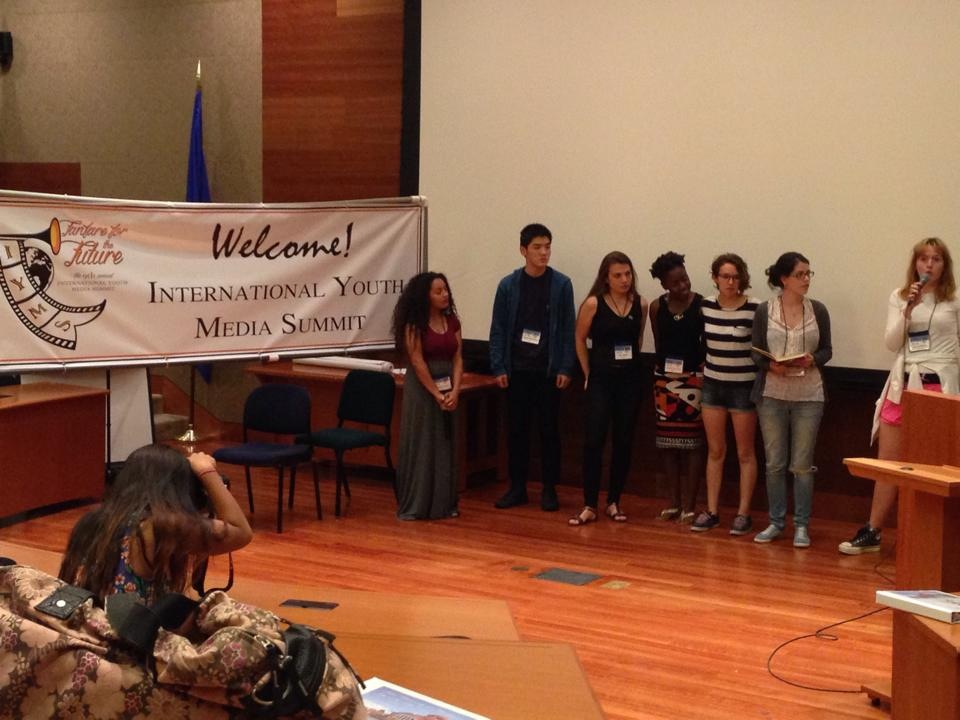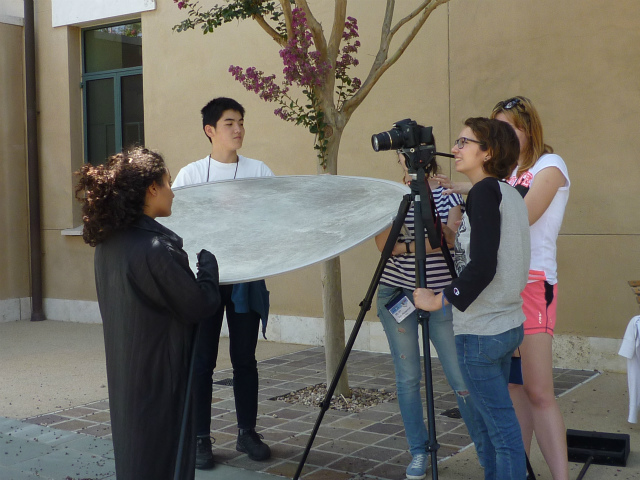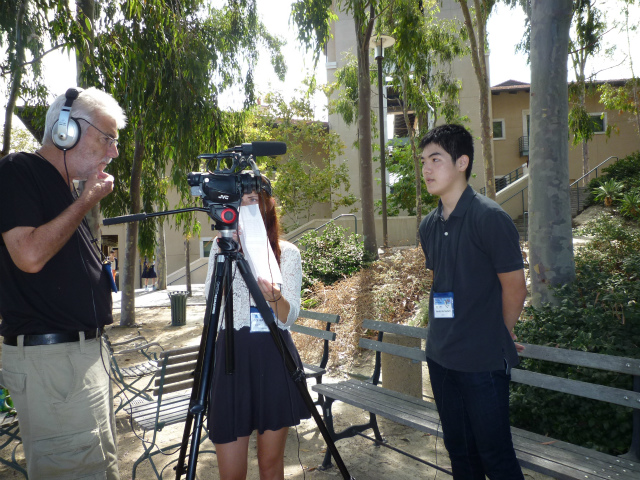by Kanato Matsumoto (15)

At noon on the third day of the “International Youth Media Summit” 2014, I was in an orientation session where each group consisting of seven students introduced themselves. I felt like whimpering in the middle of my presentation because of my poor English. I could not talk about myself fluently like other members.
Many times I was at a loss for words and said I was sorry. Then they encouraged me patiently to continue my speech and told me they did not judge me by my English level and I did not have to apologize. After I listened to those words, I started to say “Thank you” instead. Those words gave me the courage to speak English for the rest of the summit.
This event, the 9th International Youth Media Summit took place in US Soka University campus in Southern California from July 14 to 27th, 2014. Around 80 young people from 22 countries including Afghanistan, Iran, Israel, Palestine and Kosovo participated in the event. They were divided into seven groups and each group was assigned one of these topics: discrimination, poverty, violence, health, environment, women’s rights and youth empowerment.
I joined the young people’s status group. Other member students were from Armenia, Slovenia, Kosovo, United States, Mexico and Nigeria. First we presented problems relating to the young people’s status in their home countries, shared information and then discussed the solutions. A Nigerian girl told that many young people in her country could not choose what they wished to do due to financial constraints and social status. Everyone agreed that was also the case in their own countries.
Our mission was to make a one-minute video clip. Each member picked a video as their example and shared them with the other members. Then we discussed what our theme should be and how to create it. We finally decided to title our work “EVERY TALENT HAS ITS POWER” aiming to motivate young people to believe in their own talents and pursue their chosen way even if they feel hesitant to do it.

We shot our video on the university campus. Everyone was given a particular role such as producer, director, etc. and also received necessary training for our roles from professional experts. I was in charge of gaffer, controlling the light level in a scene using the light and a reflection board. This was a new skill for me. I had never experienced this kind of workshop before. I was amazed that the other members understood their roles quite well and were surprisingly skilled at video creation. Sometimes we disagreed with each other but ultimately always reached a reasonable resolution after discussion and listening to each other. Japanese people tend to withdraw their opinion before even making efforts to listen to others when they confront a different point of view. I felt this type of interaction was something the Japanese could learn from. We were all delighted when we finished editing and completed our film.
Another mission was to draft a declaration. Everyone composed an essay to discuss problems in their countries and propose solutions. One declaration from each group would be nominated for recording and would be also shown together with the group video work. The declaration I wrote was selected from our group. I asked parents and teachers to use more encouraging words to children. I practiced my English pronunciation very hard and spent much time preparing while receiving support from others for the recording. When my declaration and our video were presented in the closing ceremony, we were all filled with joy and a sense of accomplishment.

What I realized by the end of the summit was that at the beginning, we all came with many worries but by the end we all successfully worked as a team and produced a video by exchanging our ideas. I learned that when we are confronted with challenges, the key to success is to jump right in and try it. When watching arguments that occurred within the groups, it made me feel that people are basically the same no matter where they come from. Most of the disagreements were a result of clashes between different cultural values and strong feelings by participants of wanting to change that. This summit brought many young people from various sets of circumstances, different views on issues. By having participants work on joint projects, it provided them an opportunity to be able see things from a more global perspective. Having spent my time among those who are able express their ideas very well and listen to others, I learned the importance of being able to assert one’s opinions. For that, I feel I must work hard to raise my level of English.